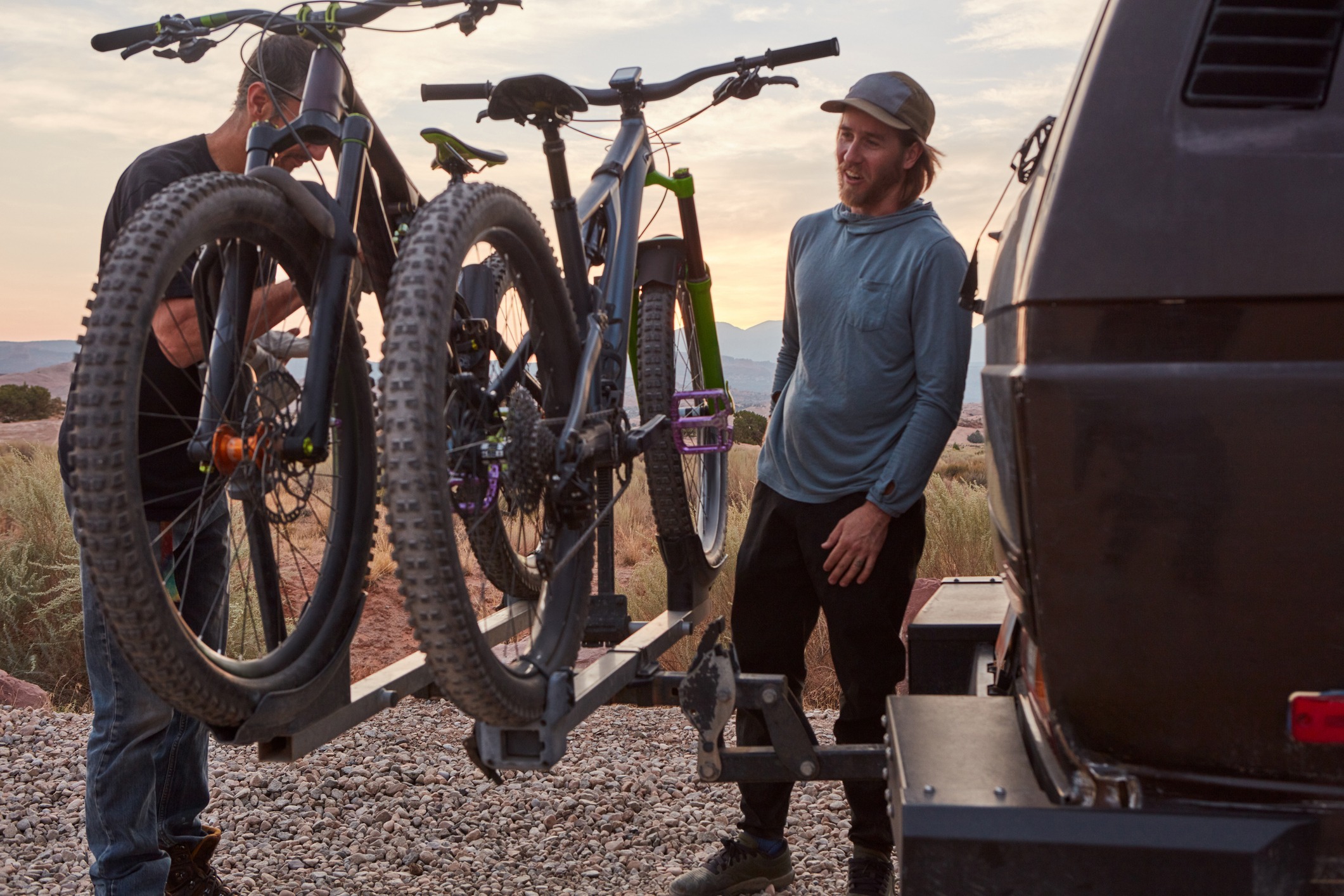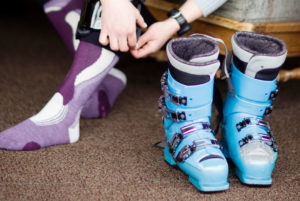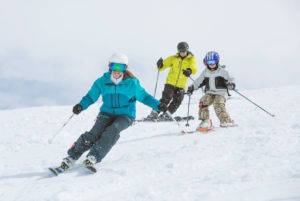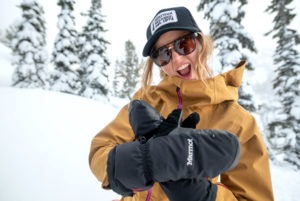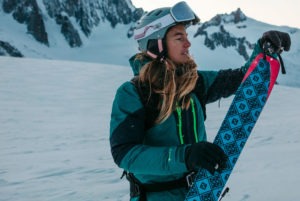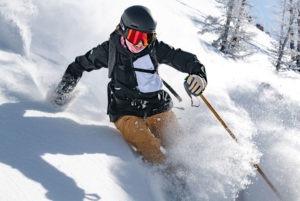If you are shopping at The House, chances are you care about our planet, because we, as outdoor enthusiasts, use the earth as our artistic and athletic playground. The mountains, oceans, lakes, rivers, forests, deserts, and everything in between are ours to protect if we want to keep enjoying the beauty that our natural world has to offer. Especially with both the literal and the political climate change in 2017, it is important that we are making ethical and eco-friendly choices in everything that we do. This includes when shopping for our recreational activities, so I’ve researched one of my favorite brands –Patagonia – and detailed its promise to sustainability, equity, and social change.
“Build the best product, cause no unnecessary harm, use business to inspire and implement solutions to the environmental crisis.”
Being from Minnesota, I am no stranger to the active lifestyle clothing company, Patagonia, which has been gaining popularity in recent years. I am a huge fan of Patagonia, not only for its style but for its message to humanity as well. Patagonia believes that it is our responsibility to aid environmental and social movements with the natural resources that our great earth provides. This simple mission is derived from the company’s epilogue– a story of a man who spent his life in the mountains rock climbing. In 1953, Yvon Chouinard was just fourteen years old when he decided that he could perfect the sport of climbing with pitons made of stronger material than what was offered at the time. Chouinard scavenged through junkyards and recycled the materials to construct a sturdy piton (his first was made with an old harvesting blade). His piton was successful, and soon his friends wanted Chouinard to carve more, and thus his business soared.
The use of brass and other harsh materials soon became problematic, as it was apparent that the rocks were being affected by the strident impact of the pitons. Chouinard and his entourage knew they needed to change and expand their brand to remain environmentally friendly and popular on the market. Their alternative method for climbing came from aluminum chocks that would not harm the rock’s natural structure; they called this new method, “clean climbing,” because the rock remained “clean” from damages. Chouinard and team also wanted to become more than just a rock climbing equipment company, so they began selling outdoor gear that was not only trendy, but ethical and inventive as well. With the clothing addition, Chouinard’s company needed a new name. They wanted something that can be said in all languages, something, too, that was off the grid yet memorable. “Patagonia,” the brand writes, “brings to mind romantic visions of glaciers tumbling into fjords, jagged windswept peaks, gauchos and condors.”
From this simplistic beginning, Patagonia has been devoted to taking small actions that make striking impacts. They believe that every human can do a little to improve the world as a whole, and I could not agree more. As keepers of this planet, it most certainly is our responsibility to keep everyone and everything running. Patagonia has been maintaining this mindset since 1988 when they started their first national environmental campaign to deurbanize the Yosemite Valley. Since then, each year they lead an educational movement that has to do with an environmental issue. Along with these campaigns, Patagonia also hosts a “Tools for Activists” conference every 18 months to teach companies how to market and sell ethically.
Patagonia addresses their own environmental impact by using strictly organic cotton when fabricating their clothing. Even so, they are still researching to find the most sustainable combination of fibers for their brand. Recently they have begun to experiment with hemp and recycled polyester, and they are striving, in theory, to make the clothing itself recyclable.
But Patagonia is not perfect. No one is in this world. We are all consumers, and thus we are famishing the earth from its resources. Patagonia admits to its excessive use of fossil fuels, water, plastic, carbon, and other elements that harm the planet. They are not ignorant, and that to me is important. They know that they themselves cannot eliminate climate change, but they are aware that they need to conserve energy and act ethically.
Patagonia writes that their work to change includes:
- Reducing the environmental impact of our company and supply chain
- Supporting grassroots activists by paying an Earth Tax
- Using our company voice to advocate for systemic change
- Empowering our customers by making quality products that can be repaired
- Supporting regenerative practices in ranching and agriculture
- Envisioning a new approach to business
Each of these points is not simply a marketing tool for Patagonia. The company has worked in depth with each element to aspire and implement change within their own brand as well as the entire world. As their brand grows, so does their environmental impact, so they are continuously changing, educating, and working to reduce their harms and encourage ethical living.
Being a fair trade company is crucial in today’s capitalistic market. Patagonia prides itself in fair labor practices and safe working conditions for all of their employees. Patagonia commits to CR – Corporate Responsibility- meaning they take responsibility for every impact their brand makes upon an individual or community. To assert this practice, Patagonia utilizes various tools that aid in fair trade business.
- Supplier Workplace Code of Conduct –
- Fair Labor Association
- The Patagonia “4-Fold” Approach To Supply Chain Decisions
- Monitoring Factories, Mills & Farms
- Responsible Purchasing Practices Program
- Multi-Stakeholder Initiatives
- Transparency
Patagonia cares for every single life the brand crosses, including migrant workers. Today, migrant workers have to pay on average $7,000 to land a job. This, in turn, produces a form of systemic indentured servitude that acts like modern-day slavery. Migrant workers are not paid enough to rid themselves of the debt that was shackled to them to receive the job primarily. Patagonia sees the inhumanity in this and asserts that their migrant workers have standards in “re-hiring interactions, labor contracts, wages and fees, retention of passports, living and working conditions, grievance procedures and repatriation.” Their efforts were not left unnoticed; in January of 2014, they received a call from the White House asking them to speak about their work with Combating Human Trafficking in Supply Chains. Snaps and Claps to Patagonia.
And you can take action, too. Patagonia has numerous campaigns for citizens to aid with, such as their #CrudeAwakening initiative that was founded after the 2015 Santa Barbara pipeline rupture that left 140,000 gallons of oil polluting the ocean. #CrudeAwakening fights to stop risky pipeline construction in order to preserve sea life and shorelines. Patagonia also supports dam removal, making “a transition toward lower-impact energy and water sources that, combined with conservation and increased efficiencies, cause less harm to ecosystems, communities, and cultures.” There are many different dam removal campaigns that Patagonia aids, and you can help by signing these same petitions. Lastly, Patagonia wholeheartedly believes in electing political leaders that care about our planet. They started their #VoteOurPlanet movement that showcases candidates that regard the fragility of our planet’s current state. These candidates defend the air, soil, and water and work to rise against climate change. If we do not have leaders that see that we need change, then the future for our kids and wildlife will crumble.
I have only touched on Patagonia’s drive to reduce climate change & to save our environment holistically. The company continues to delve deeper into these issues, creating more campaigns, more movements, and more actions that will help our world over time. It is our job as nature seekers and outdoor aficionados to implement changes and, of course, support brands like Patagonia.
At the House, we believe in Patagonia and offer their best products at low prices. My favorite items we have right now are listed below. But check out all of our Patagonia products here.

Women’s Patagonia Strider 3in Shorts
$49.00

Patagonia Lightweight Synchilla Snap-T Pullover Fleece 2017
$74.95

Patagonia Better Sweater Jacket – Womens 2018
$139.00
Go green. Conserve. Love your Planet.
-Tessa












